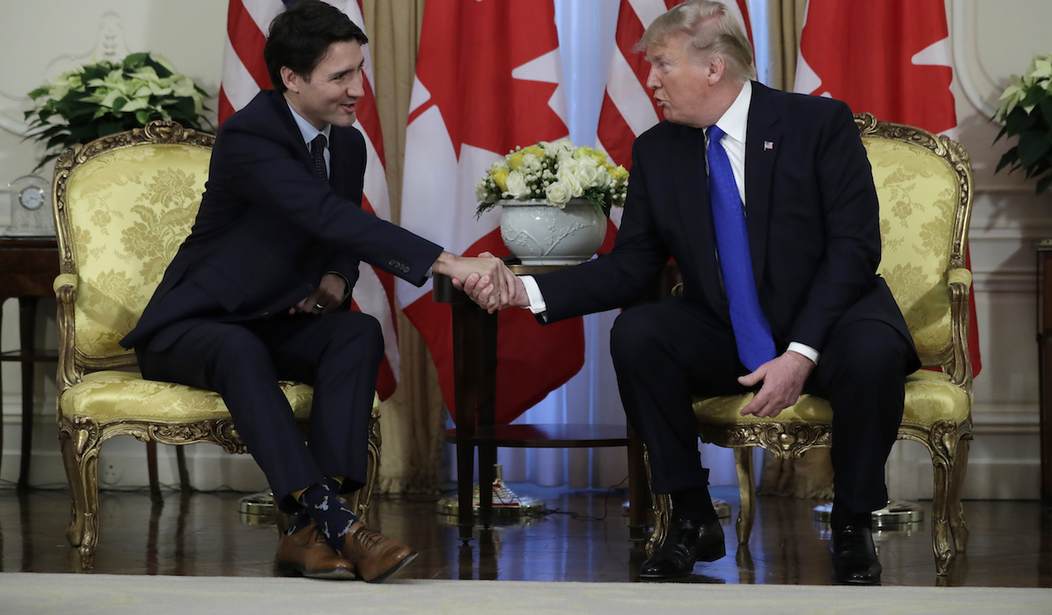The North Atlantic Treaty Organization (NATO) is stronger than ever before thanks to President Trump’s emphasis on burden-sharing.
When Donald Trump was running for office, he insisted that NATO requires fundamental reforms in order to tackle the complex geopolitical challenges of the post-Cold War world order – to make itself relevant and viable in the 21st century. In particular, he raised vehement objections to the unequal status quo that U.S. presidents had studiously overlooked for decades — the fact that America was contributing enormous amounts of money to mutual defense while our European allies consistently shirked the treaty’s spending commitments.
As President, he’s only become more adamant about rebuilding the alliance, applying steady, and effective, rhetorical pressure on NATO members to increase their defense spending so that American taxpayers are not overburdened with the bill for our allies’ basic security needs.
"Over the last eight years, the United States spent more on defense than all other NATO countries combined," President Trump pointed out shortly after taking office. "Two percent is the bare minimum for confronting today's very real and very vicious threats. If NATO countries made their full and complete contributions, then NATO would be even stronger than it is today, especially from the threat of terrorism."
President Trump’s logic is unassailable — NATO is an alliance, and it can’t rely on a single member to carry the burden for the rest. Much like a professional sports team that has become too dependent on a single superstar, NATO cannot function effectively without meaningful, and consistent, contributions from each of its 29 members.
Regrettably, the mainstream press routinely takes these remarks out of context, inaccurately portraying the President as an opponent of NATO intent on undermining the alliance. Some outlets have even cited Trump’s criticism of NATO’s shortcomings in support of the debunked conspiracy theory that he is a “Russian asset.” To this day the “Russian Collusion Narrative” conspiracy theorists undermine US and NATO security by continuing to do the Russian’s work for them by their innuendo and lies.
Recommended
This criticism from the Russian Collusion Dead-Enders, however, could not be further from the truth. In reality, Donald Trump is working to revamp the alliance so that it can meet the security challenges of the 21st century — and his outreach to NATO countries is accomplishing just that.
At the latest NATO summit in London this month, NATO Secretary General Jens Stoltenberg announced that the alliance is “making real progress” on burden-sharing, pointing out that Canada and the European allies have invested an additional $130 billion on defense since 2016, with the goal of increasing their defense spending by a combined $400 billion by 2024.
“This is unprecedented,” he stressed. “This is making NATO stronger. And it shows that this Alliance is adapting, responding when the world is changing.” He has restored credibility and capability to an alliance that had become nothing more than a paper tiger.
More importantly, President Trump continues to defend NATO from those who really are seeking to undermine its legitimacy. After French President Emmanuel Macron called NATO “brain dead,” for instance, the President forcefully condemned the statement — to Macron’s face — as both “very, very nasty” and “dangerous” to the alliance.
“Nobody needs NATO more than France,” Trump remarked, alluding to the fact that defending Western Europe has been NATO’s primary mission since the alliance was founded.
Despite the relentless criticism from the mainstream media and the Democrats, President Trump has never deviated from his strategy for strengthening NATO — and thanks to his insistence on burden-sharing, the alliance will be prepared to confront any aggressor on the world stage for many years to come. He will see it reinvigorated and made vital for effective application of US national security and the collective security of its 29 members.
Lt. Col. Tony Shaffer is a retired senior intelligence operations officer and President of the London Center for Policy Research.

























Join the conversation as a VIP Member